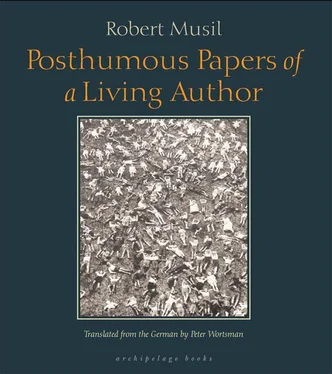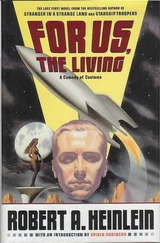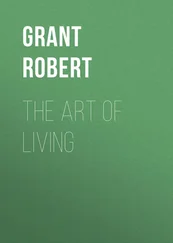But don’t think this is the same story I already told you today! No — because just as I was thinking: There are no nightingales here, it’s a blackbird — at that very moment, I woke up. It was four in the morning, daylight streamed into my eyes, sleep sank away as quickly as the last trace of a wave is soaked up by the dry sand at the beach. And there, veiled in daylight as in a soft woolen scarf, a blackbird sat in the open window! It sat there just as sure as I sit here now.
I am your blackbird — it said — Don’t you remember me?
I really didn’t remember right away, but I felt happy all over while the bird spoke to me.
I sat on this windowsill once before, don’t you remember? — it continued, and then I answered: Yes, one day you sat there just where you now sit, and I quickly closed the window, shutting it in.
I am your mother — it said.
This part, I admit, I may very well have dreamed. But the bird itself I didn’t dream up; she sat there, flew into my room, and I quickly shut the window. I went up to the attic and looked for a large wooden bird cage that I seemed to remember, for the blackbird had visited me once before — in my childhood, like I just told you. She sat on my windowsill and then flew into my room, and I needed a cage. But she soon grew tame, and I didn’t keep her locked up anymore, she lived free in my room and flew in and out. And one day she didn’t come back again, and now she had returned. I had no desire to worry about whether it was the same blackbird; I found the cage and a new box of books to boot, and all I can tell you is that I had never before been such a good person as from that day on: the day I had my blackbird back again — but how can I explain to you what I mean by being a good person?
Did she often speak again? — Aone asked craftily.
No — said Atwo — she didn’t speak. But I had to find bird food for her and worms. You can imagine that it was rather difficult for me: I mean, the fact that she ate worms, and I was supposed to think of her as my mother — but it’s possible to get used to anything, I tell you, it’s just a matter of time — and don’t most everyday matters likewise take getting used to! Since then I’ve never let her leave me, and that’s about all I have to tell; this is the third story, and I don’t know how it’s going to end.
But aren’t you implying — Aone cautiously inquired — that all this is supposed to have a common thread?
For God’s sake, no — Atwo countered — this is just the way it happened; and if I knew the point of it all, then I wouldn’t need to have told it in the first place. But it’s a bit like hearing a whisper and a rustling outside, without being able to distinguish between the two!
POSTHUMOUS PAPERS REVISITED
“What matters to me,” Robert Musil wrote in a diary notation dated 1910, “is the passionate energy of the idea.”
What matters to us is the product of that passion tapped like a fermented sap from his overripe mind, a blend of deeply felt thoughts and dispassionately reasoned feelings filtered through vivid metaphors rooted in a life from which Musil maintained a lifelong remove. Steeped in military science, engineering, mathematics, philosophy and behavioral psychology, each sentence is a poetic treatise unto itself, taking aim like a sharpshooter’s rifle, whirring like a well-oiled engine, fitted with the perfect balance of a theorem, a rigorously reasoned philosophical substrata, and keen psychological insight, the whole capped off with the mysticism of a skeptic. It’s a rich dish indeed, the mark of a true Dichter , that untranslatable German composite of poet and philosopher with a sprinkling of the prophet and a touch of the fanatic.
What are we to make, for instance, of the following sentence from “Flypaper,” the first piece in Posthumous Papers of a Living Author , a dark meditation on flies stuck fast to the stuff of their undoing? Imagining the insect’s conundrum on first fathoming its fastened state, Musil puts himself (and us) in its place:
It’s a very quiet, disconcerting sensation, as though while walking in the dark we were to step on something with our naked souls, nothing more than a soft, warm, unavoidable obstruction, and yet something into which little by little the awesome human essence flows, recognized as a hand that just happens to be lying there, and with five ever more decipherable fingers, holds us tight.
Consummate Musil, it’s a sentence replete with grammatical subordination and plenty of Kant, in which the abstract melds inscrutably with the particular, a sentence in which Aesop meets Nosferatu, in which the physical suddenly turns meta, the real sur-real, conjuring up a vivid, albeit unimaginable, picture, an indissoluble capsule of seeing and feeling and thinking. It’s as if Kant himself, impersonating an anthropomorphic fly for the edification of imagined progeny, got trapped in the telling of a Grimm fairy tale and never made it past the once-upon-a-time.
Born in the provincial town of Klagenfurt, Austria, in 1880, the son of a “clear-headed,” albeit rigid, academic engineer and a “curiously muddled mother, like slumbering hair upon a handsome face,” (according to another diary notation), Robert Musil took a circuitous educational path, attending military boarding school and, to his parents’ great chagrin, promptly abandoning a career in the military, only to pursue and drop studies in mathematics, engineering, philosophy and behavioral psychology, respectively. Conscripted as an officer in the Imperial Austrian army during World War I, he edited a military newspaper. A brief stint as a drama critic after the war was one of his last attempts at gainful employment before finally settling into the uncertain life of an independent author.
While his first book, Die Verwirrungen des Zöglings Törless (Young Törless), a novel published in 1906, was an immediate and smashing success, subsequent works were less well received. Two volumes of short fiction, Vereinigungen (Unions), 1911, and Drei Frauen (Three Women), 1924, received respectable notice but did not sell well. A play, “Die Schwärmer” (The Enthusiasts), 1921, was honored with the prestigious Kleist Prize two years later, but bombed at the box office. Another play, “Vincenz und die Freundin Bedetuender Männer” (Vincenz and the Girlfriend of Influential Men), 1923, didn’t do much better. Undaunted, Musil devoted much of the rest of his waking consciousness for the remainder of his days to the composition of his epic novel, Der Mann Ohne Eigenschaften (The Man Without Qualities), a work often compared in its breadth of vision and innovative structure to James Joyce’s Ulysses and Marcel Proust’s A la recherche du temps perdu (In Search of Time Past). The first volume was published in 1931 to much acclaim but modest sales, followed by another installment in 1933, the same year Hitler came to power — an inauspicious year for serious intellectual endeavors in the German language.
Though essentially apolitical, Musil was constitutionally averse to the philistinism of the Third Reich. His wife Martha’s Jewish parentage added another complication. The Musils, who resided in Berlin at the time, moved back to Vienna, and thereafter, following Austria’s annexation to the Reich, fled to Geneva, where Musil died in 1942. His widow released the unfinished conclusion of his magnum opus in 1943. The entire work was finally issued in three volumes, as edited by Adolf Frisé, from 1952 to 1957. Sophie Wilkins’ and Burton Pike’s landmark English translation was published in New York in 1995.
In 1935, while laboring on his masterpiece in poor health in destitute Swiss exile, Musil reluctantly allowed the Humanitas Verlag in Zürich to issue a slender compilation of previously published occasional writings. The ironic title he picked, Nachlass zu Lebzeiten (Posthumous Papers of a Living Author), reflected the author’s profound ambivalence at presenting this reheated platter of this and that while the world he knew was going under and he himself was going nowhere. “To publish nothing but little tales and observations amidst a thundering, groaning world,” he wrote in the foreword, “to speak of incidentals when there are so many vital issues; to vent one’s anger at phenomena that lie far off the beaten track: This may doubtless appear as weakness to some, and I will readily admit that I had all kind of doubts regarding the decision to publish.”
Читать дальше











